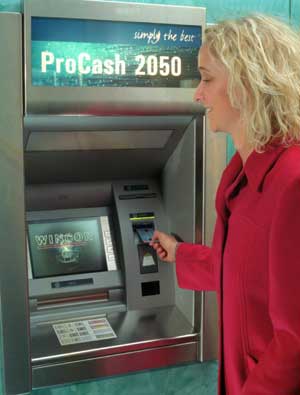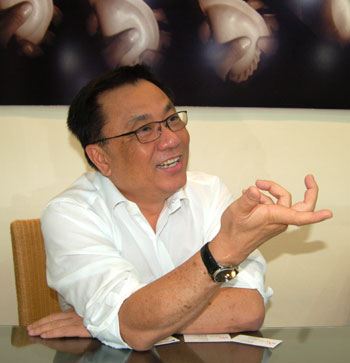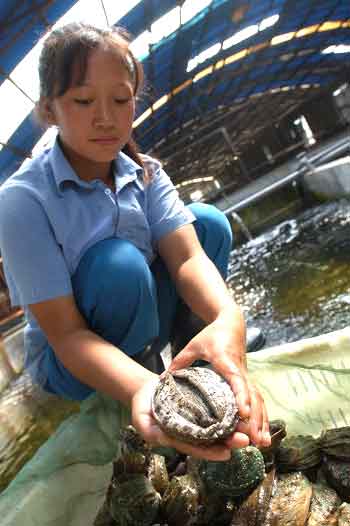Asia’s only UL-certified safe maker Dutech declares 2-cent dividend
 Dutech is an original design manufacturer of safes for bank ATMs. Photo: CompanyDIVIDEND YIELD-to-date for Dutech is 9%, based on the last closing price of 23 cents.
Dutech is an original design manufacturer of safes for bank ATMs. Photo: CompanyDIVIDEND YIELD-to-date for Dutech is 9%, based on the last closing price of 23 cents.The designer and manufacturer of UL-certified high security products such as ATM safes, bank vaults and fire-resistant commercial safes is paying an interim dividend of S$0.02 for 1Q2008.
Totaling Rmb 33 million, the dividend payout represents 51% of FY07 earnings attributable to shareholders. No dividends were declared for FY07.
Major banks require UL certification for ATMs and Dutech is the only safe maker in Asia with that certification.
The company posted 1Q08 revenues of Rmb 59.4 million this week, up 24.4% y-o-y.
Spikes in the price of steel, which comprises more than 70% of the cost of sales, were raised as a cause of concern by OCBC analyst Lee Wen Ching.
So how did the company maintain its gross margins, which merely edged down 0.7 of a percentage point to 32.1% despite a 30% hike in steel prices over the 12 months ended Mar 2008?
Dutech is not exposed to fluctuations in steel prices as the high tensile steel it uses are non-commoditised special orders, said a company spokesman.
That is to say, the price and quantity are contracted with steel mills only after Dutech's customer agrees to the order.
Dutech's net earnings, however, dipped 13.1% to Rmb 9.3 million largely due to a 95.3% increase in admin expenses and a net forex loss of Rmb 2.4 million.
Admin expense rose partly due to listing compliance expenses after the company was listed on SGX on 2 Aug 2007.
Its net operating cash flow turned around y-o-y, from an outflow of Rmb 2.1 million for 1Q07 to an inflow of Rmb 4.2 million for 1Q08.
The company now sits on some Rmb 117 million of cash.

Photo by Sim Kih
WHAT MAKES Han Keen Juan, 56, the man behind Old Chang Kee, tick?
”The day you can’t adjust and change, that day, you begin to shrivel and die” is his favorite Lee Kuan Yew quote.
Old Chang Kee was transformed by Han into a fast food chain with outlets in Singapore, Malaysia, Indonesia, the Philippines and China in the two decades after he took over the business from its founder.
He was featured in a cover story in the Life! section of The Straits Times last Monday. Quotable quotes:
'I never regret what I do, I never gostan (Malay for reverse) and I die die must go ahead'
- Han Keen Juan on his never-say-die spirit
My gut feeling told me there was a lot of potential in the business. Every Singaporean loves curry puffs, regardless of race, language or religion, just like what our pledge says’
- On his decision to give up his marketing manager job to buy over Old Chang Kee
'When an ang moh speaks Mandarin, we think he's brave. So why should a Chinese person be afraid of people laughing at him when he speaks English, even if he does it badly?'
- On overcoming his fear of speaking English as a young man

Aquaculture farm OCEANUS lists on SGX
ABALONE PRODUCER Oceanus listed on Catalist this week through a RTO float of S$353 million.
Net proceeds of S$55 million were raised in a private placement.
Strategic investors include Ah Yat Abalone Forum Restaurant and the founders of Skylight Abalone.
Institutional investors include The Dubai Investment Group, Lehman Brothers and Guoco Group.
Oceanus intends to use the placement proceeds to expand its production and feedmill capacity.
Besides farming about 110 million abalones, the company also breeds halibut and turbot.
Its plan is to go into processing, distribution and retail.
Other SGX-listed companies dealing in seafood include fishing company China Fishery, as well as Ocean International, which produces, processes and distributes fish fillets.
Investment strategy for commodities and agriculture
“THE BEST WAY to play the agriculture boom is through agriculture land”, Lehman Brothers equity strategist Paul Schulte was quoted as saying by The Edge this week.
Agriculture land is becoming scarce because of
(1) Urbanization caused by a population explosion in China and India; and
(2) Environmental degradation caused by floods, weather changes and droughts
The strategist believes the coming decade will be dominated by a shift of investment focus from urban toward rural land.







